Frederic Chopin in Paris
The series about historical places of opera art & culture. Get to know exciting excursion and travel ideas for opera lovers. This time: Frederic Chopin in Paris.
All Destinations on google maps with links to detailed Blogposts:
Frederic Chopin in Paris
Chopin arrived in Paris in 1830 at the age of 20. His reputation had preceded him and he was soon able to make a living giving piano lessons to wealthy piano students. His first public concert in the Salle Pleyel was enthusiastically applauded by the elite of the Parisian art world. Chopin excelled in the salons (but gave only a few public concerts, which took place in the two Salle Pleyel) and befriended many personalities of the Parisian art world, especially Franz Liszt.
Because Chopin gave few public concerts, he earned his living to a considerable degree as a piano teacher to the wealthy class. He was a sought-after teacher and could charge high fees to finance his upscale lifestyle.
He loved expensive clothes, had employees and his own carriage, and worked intensively on his works. In 1837 he had plans to marry Maria Wodzińska, but they failed due to her parents’ opposition. Thereupon he met George Sand, whom he initially met with rejection (“What an unsympathetic woman she is! Is she really a woman? I almost doubt it”), but she became his companion for 10 years, which meant a small scandal for Parisian society, since this writer was divorced and led an unseemly life.
Chopin remained faithful to Paris until his death, but made important trips to Germany (where he met Schumann and Mendelsohn), to Carlsbad (where he saw his family again), had a winter stay in Mallorca (with Georges Sand) and various summer holidays in Nohan (with Georges Sand). The last trip took him to England with Jane Stirling and took its toll on Chopin’s fragile health. He did not have much time left after that. During a few performances at the beginning of 1849 he even had to be carried up the stairs and he died in the same year in his apartment in the Place Vendôme.
TO THE COMPLETE BIOGRAPHY OF CHOPIN
TO THE OVERVIEW OF ALL DESTINATIONS “OPERA & CLASSIC OF PARIS“.
George Sand:
Franz Liszt:
Destination Chopin’s apartments
In his 18 years in Paris, Chopin lived in 10 different apartments. Many of the houses are no longer standing.
First he moved into a small apartment in the Rue de la poissonnière. The house is no longer standing. An impression gives a painting of this street, which was made 3 years later.
Rue de la poissonnière, 1834:
Soon Chopin had some piano students from the better society and the income allowed him in 1832/33 to move into a more spacious, furnished apartment at 4,Cité Bergère, a beautiful enclosed alley. Today, number 4 is a hotel, Chopin’s appartent was on the first floor (in the photo on the right, the building with the beautiful iron portal).
Cité Bergère:
From 1842-1849 he lived in Square Orléans. In this place lived many artists such as Kalkbrenner, Delacroix and Franchehomme. Chopin lived at number 5, on the first mezzanine. Near him, at number 9, George Sand lived until they separated in 1847. There are commemorative plaques for the respective residents on both buildings (access via Rue de Taitbout 80).
Square Orléans:
Destination Musée de la vie romantique
This house is one of the rare contemporary witnesses of the world of Parisian salons. In this house the artist Ary Scheffer received the artistic and literary society, such as Chopin, George Sand, Liszt, Rossini, Delacroix, Pauline Viardot and many others. The house shelters on the lower floor an apartment arranged with furniture from the estate of George Sand, on the upper floor there is a furnished salon, as well as an art exhibition of the painter.
Musée de la vie romantique:
A look inside the museum:
https://museevieromantique.paris.fr/fr
Destination 9, rue Cadet (L’Hôtel Cromot du Bourg)
This was the first large showroom of the Pleyel piano company with an adjoining concert hall. It was the place where Chopin had given the first public concert on February 25, 1832 (in front of about 100 people) and had an illustrious crowd of guests as listeners, such as Liszt, Mendelssohn and Clara Schumann. In the first part he played, among others, the first piano concerto accompanied by a string quartet in the second part he participated in a show in which a third-party composition was played with 6 pianos in order to demonstrate the quality of the Pleyel pianos. The audience gave enthusiastic applause to the Polish newcomer. Chopin subsequently entered into a business relationship with Pleyel and preferred to play on his instruments, whose light touch he greatly appreciated and supported his nuanced playing.
On December 25, 1834, Chopin gave a duet with his friend Franz Liszt, and one more time in 1835 he played in the same room with Hiller. In 1839, Pleyel moved to a new location, rue de Rochechouart which became the most important concert hall in Paris for almost 100 years (that no longer exists, the current Pleyel Hall is in a different location). Chopin gave two acclaimed concerts in this hall.
Today the rooms are used commercially.
9, rue Cadet:
Destination deathplace 12, Place de la Vendôme
When Chopin’s sister rushed to Paris to help her brother, they moved into a seven-room apartment together at 12 Place Vendome in September 1849. He was financially supported by his friends, especially Jane Stirling. His agony lasted a month. When he died on October 17, six friends sat around the bed. Chopin died of pericarditis caused by tuberculosis (as did many of his relatives, including his father).
The rooms were luxuriously renovated and are now used commercially.
12, Place Vendôme:
Destination Madeleine
After his death, Chopin was laid out in the Madeleine. 3,000 mourners came to bid him farewell. At Chopin’s request, the Préludes in E minor and B minor, among others, were played, as well as Mozart’s Requiem at the end.
La Madeleine:
Destination Cemetery Père Lachaise:
On Chopin’s grave Euterpe, the muse of music, is watching and crying in view of a broken instrument. The monument is by Auguste Schlésinger, husband of George Sand’s daughter Solange.
His heart was taken from his body before burial, which his sister smuggled to Poland.
Chopin’s tomb:
Destination Chopin Portrait in the Louvre
This painting of Chopin was painted by the famous painter Eugène Delacroix, whom Chopin had met through George Sand. This portrait is taken from a larger portrait. Originally Delacroix had painted a scene with Chopin at the piano and George Sand next to him, but he cut the painting apart, expecting to get a higher price if he could sell two paintings. The large remainder of the painting could not be found. The portrait of Sand hangs in a Copenhagen museum.
Chopin Portrait by Eugène Delacroix:
Destination Parc Monceau Chopin monument
There is an interesting monument from 1906 in Parc Monceau. It shows the composer with (presumably) the famous Jenny Lind at his feet. Jenny Lind became one of the greatest singers in the forties and met him on his London trip. She seems to have fallen in love with him and hoped to marry him.
Chopin Monument Parc Monceau:
Reiseziel Café Le Procope
The Procope is a 17th century institution with a rich tradition. It was one of the first coffee houses. It became a literary and political café in the 18th century (Voltaire and Rousseau) and many writers and artists frequented it in the 18th century. George Sand visited the Procope several times in the company of Frederic Chopin.
Today it is a refined but cosy restaurant with an interior reminiscent of the old days, offering French specialities such as calf’s head.

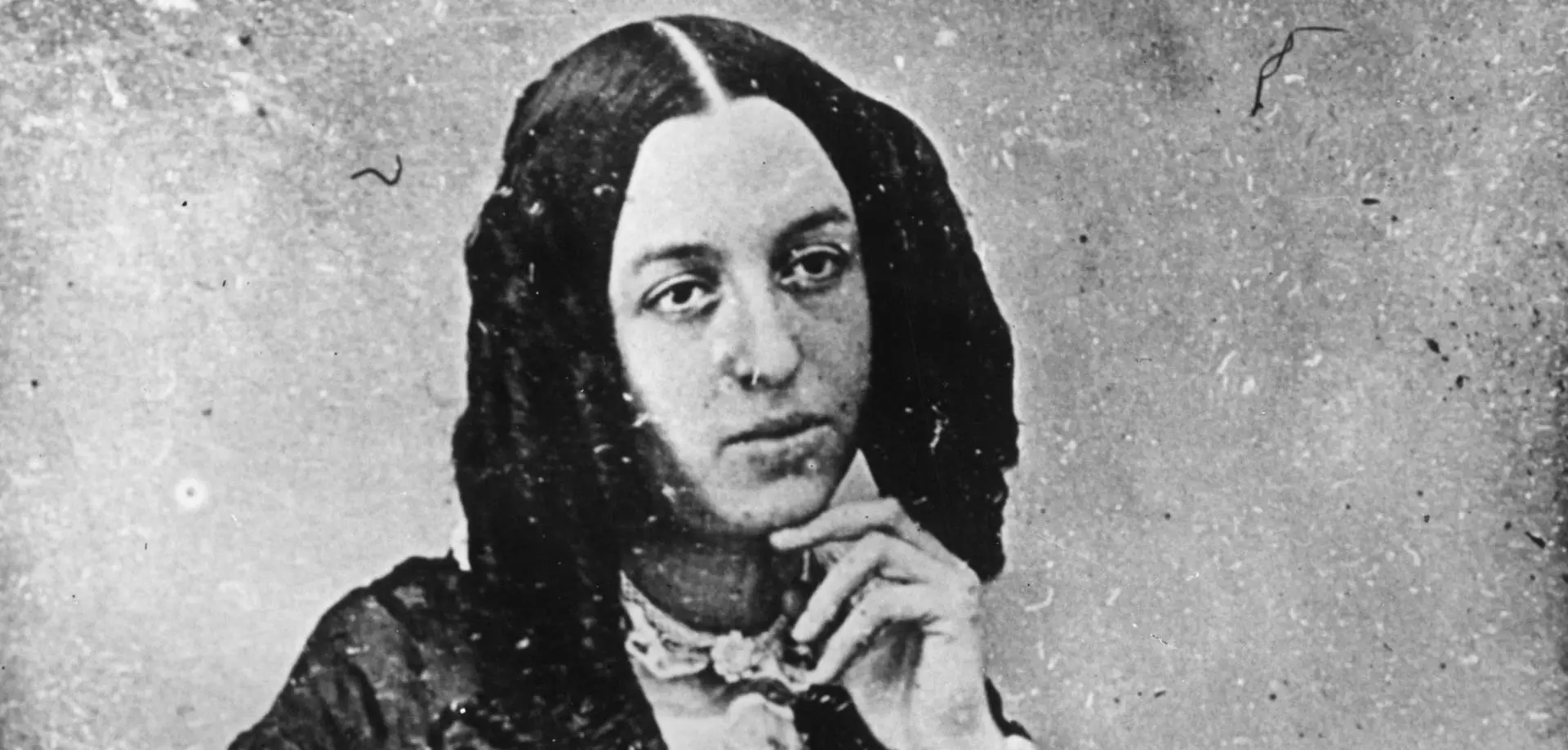
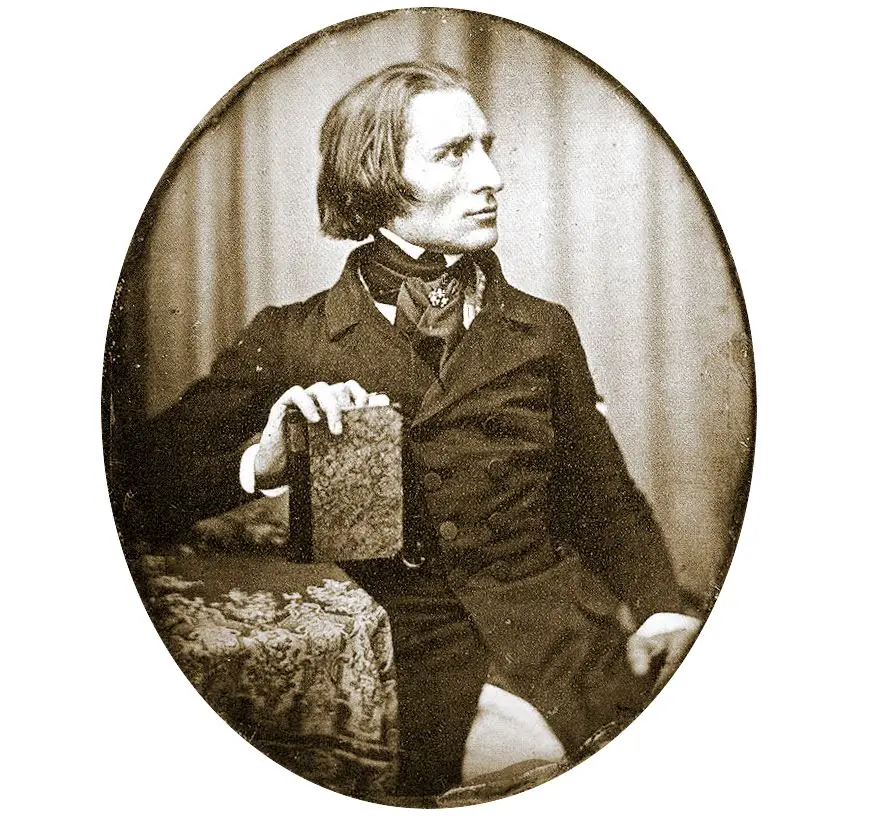
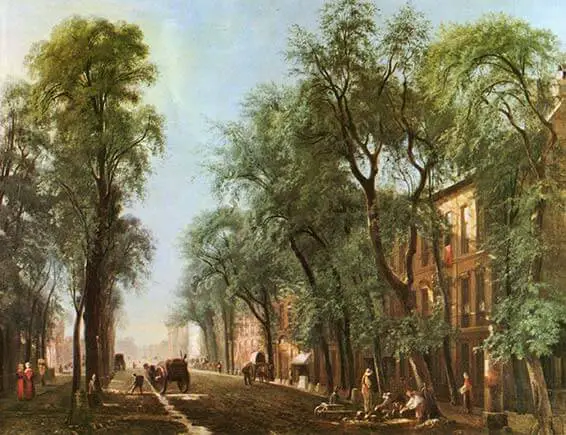
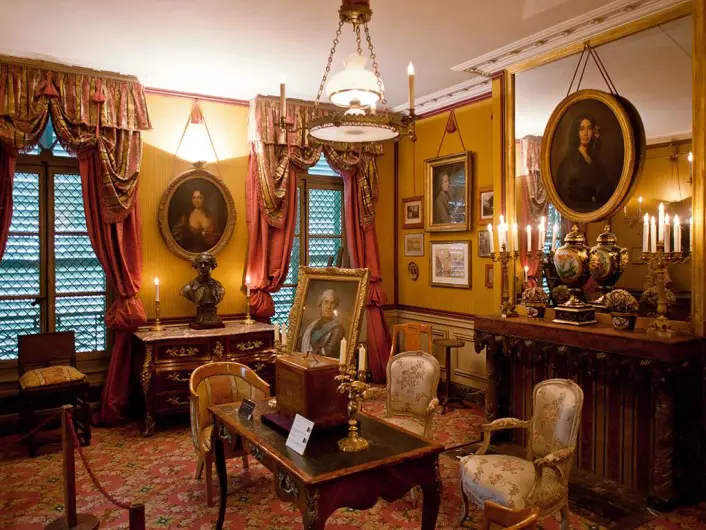
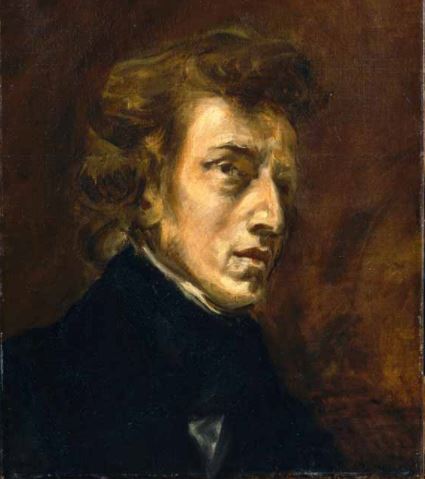
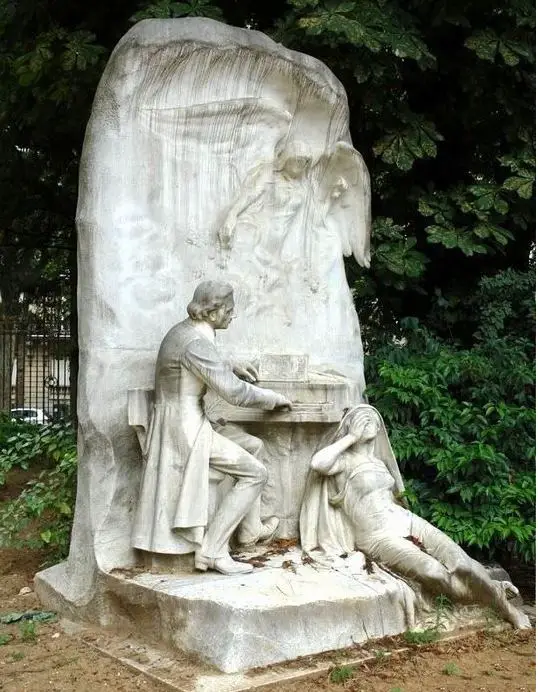
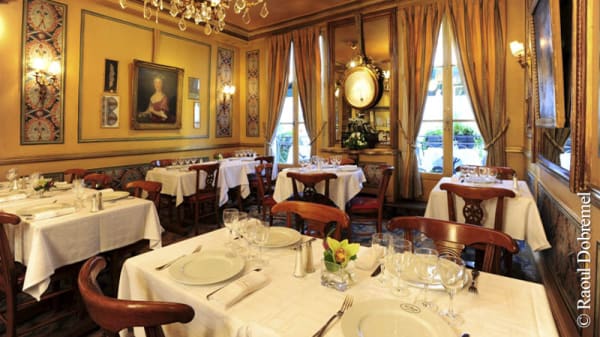
Leave a Reply
Want to join the discussion?Feel free to contribute!